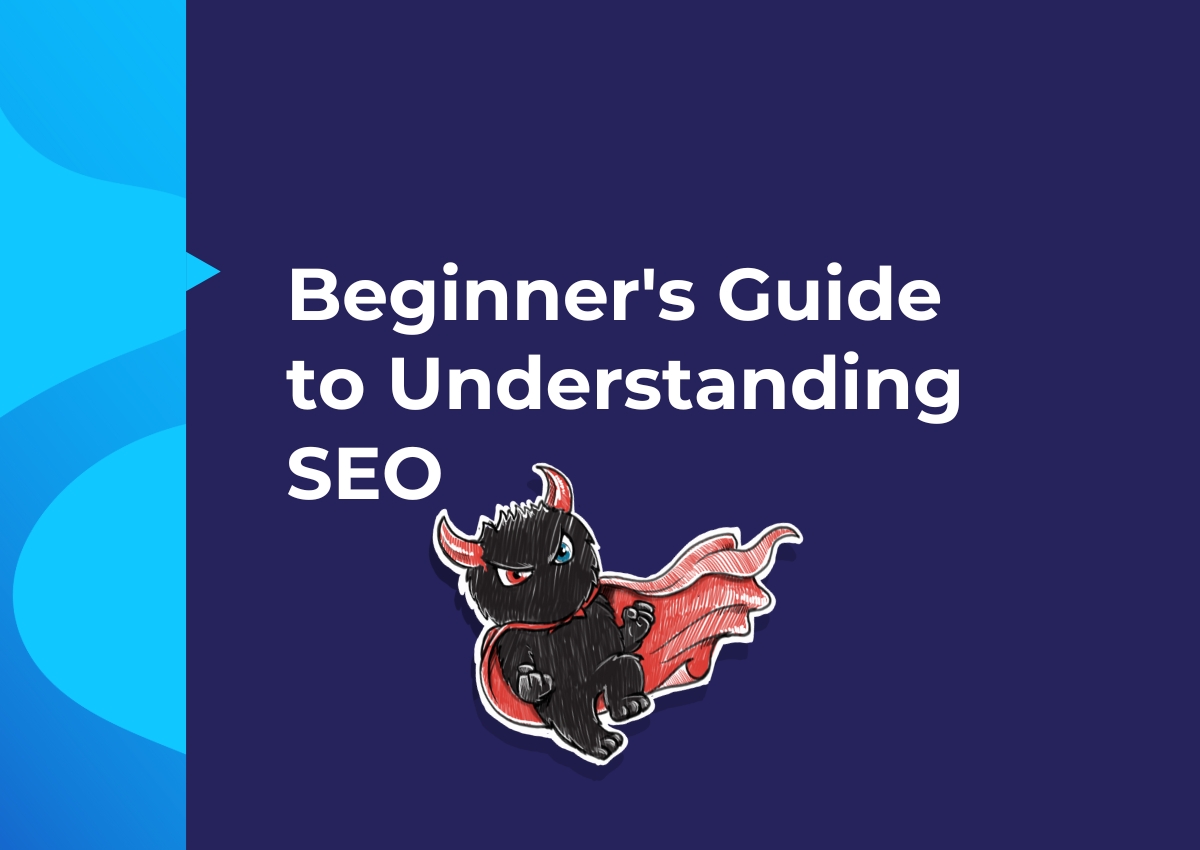 https://www.omahamediagroup.com/images/uploads/monster_gallery/Omaha-Media-Group-Black.jpg
admin
https://www.omahamediagroup.com/images/uploads/monster_gallery/Omaha-Media-Group-Black.jpg
admin
Beginner’s Guide to Understanding SEO

Search Engine Optimization (SEO) is a key part of making sure people can find your website. If a website isn't optimized for search engines, it might not show up when people look for information online. This means your website could be lost among many others on the internet.
SEO helps improve your website's visibility on search engines like Google. When people search for things related to your website, good SEO techniques help make sure they see your site. This way, more people visit your website, which can lead to more customers and success for your business.
Understanding and using SEO can seem tricky at first, but with some basic knowledge, anyone can start making improvements. In this guide, we will explain what SEO is, why it's important, and how beginners can use simple techniques to start optimizing their websites. By making just a few changes, you can help your website reach more people and grow your online presence.
What is SEO and Why is it Important?
SEO stands for Search Engine Optimization. It's a way to make your website show up when people search for things online. When someone types a word or phrase into a search engine like Google, SEO helps your website appear in the results.
SEO is important because it attracts people to your website. More visitors can lead to more sales or more people knowing about your brand. If your website shows up on the first page of search results, more people will click on it. This can make a big difference in how much traffic your website gets.
SEO involves using keywords, which are the words or phrases people might type into a search engine. By using the right keywords on your website, you can help search engines understand what your content is about. This makes it easier for people to find your site when they look for something related to your business.
Basic SEO Techniques for Beginners
Starting with SEO can be simple if you follow some easy steps. Here are some basic techniques you can use:
- Keyword Research: Find out what words or phrases people use to search for your products or services. Use these keywords in the titles, headings, and content of your web pages.
- Quality Content: Create content that is useful and interesting to your audience. Make sure your content answers the questions people are searching for. High-quality content keeps visitors on your site longer.
- Title Tags and Meta Descriptions: These are short pieces of text that describe your content. They appear in search results and help people decide if they want to click on your link. Make sure to include keywords in these tags.
- Headings and Subheadings: Use headings (like H1, H2) to organize your content. This makes it easier for search engines to understand your page structure. It also makes your content easier to read.
- Internal and External Links: Link to other pages on your website (internal links) and to other relevant websites (external links). This helps search engines see your site as valuable and connected.
- Mobile-Friendly Design: Make sure your website works well on mobile devices. Many people use their phones to search, so a mobile-friendly site can improve your SEO.
By using these basic techniques, you can start to see improvements in how well your website performs in search results. Small changes can make a big difference in attracting more visitors to your site.
Common SEO Mistakes to Avoid
Even if you’re just starting with SEO, it’s important to avoid common mistakes that can hurt your website's performance. Here are some of the errors to watch out for:
- Ignoring Mobile Optimization: Many people use mobile devices to browse the internet. If your site isn’t mobile-friendly, you could lose a lot of visitors. Make sure your website is easy to navigate on smartphones and tablets.
- Overusing Keywords: Using keywords is important, but stuffing too many into your content can make it hard to read and can lead to penalties from search engines. Focus on natural and meaningful use of keywords.
- Poor Quality Content: Having lots of content isn’t enough if that content isn’t valuable. Ensure your articles, blog posts, and other content are relevant and engaging to your audience.
- Ignoring Analytics: Always track how your site is doing. Use tools like Google Analytics to monitor your traffic and see what’s working and what’s not. Adjust your strategies based on this data.
- Broken Links: Links that don’t work can frustrate visitors and hurt your SEO. Regularly check for and fix any broken links on your site.
By avoiding these mistakes, you can make sure your SEO efforts are more effective. Proper planning and attention to detail will help your site perform better in search results.
Measuring SEO Success: Key Metrics to Track
To understand how well your SEO efforts are working, you need to track key metrics. These metrics give you insight into your website’s performance and show where you might need to make changes. Here are some important metrics to monitor:
- Organic Traffic: This measures the number of visitors coming to your website from search engines. Increased organic traffic often indicates your SEO efforts are paying off.
- Bounce Rate: This shows the percentage of visitors who leave your site after viewing just one page. A high bounce rate can indicate that your content isn’t engaging or that your website isn’t user-friendly.
- Keyword Rankings: Track how well your website ranks for the keywords you’re targeting. This can show you which keywords are bringing in traffic and which ones need more attention.
- Page Load Time: Slow websites can frustrate users and hurt your SEO rankings. Ensure your website loads quickly by optimizing images and using efficient coding practices.
- Conversion Rate: This metric shows the percentage of visitors who complete a desired action, like making a purchase or signing up for a newsletter. A high conversion rate often means that your site is effective at turning visitors into customers.
- Backlinks: These are links from other websites to yours. Quality backlinks can boost your site’s credibility and improve its search engine ranking.
By keeping an eye on these metrics, you can better understand the effectiveness of your SEO strategies and make necessary adjustments to improve your website’s performance.
Conclusion
Understanding and implementing SEO can greatly improve your website's visibility and attract more visitors. By focusing on essential SEO techniques, avoiding common mistakes, and regularly measuring your website’s performance, you can ensure that your site ranks well in search engines. This will lead to increased traffic and potential growth for your business.
You've learned about the basics of SEO and how to get started with it. Now, it's time to take action and put these strategies to work. Implementing effective SEO practices can make a big difference in your online presence.
For personalized help and expert SEO services, get in touch with us at Monstrous Media Group LLC. We're here to help you optimize your website and achieve your marketing goals. Let’s make your website stand out and reach more people today!
Hire the team to help you with your website, app, or other marketing needs.
We have a team of digital marketers who can help plan and bring to life all your digital marketing strategies. They can help with social media marketing, email marketing, and digital advertising!
CONTACT US

Comments